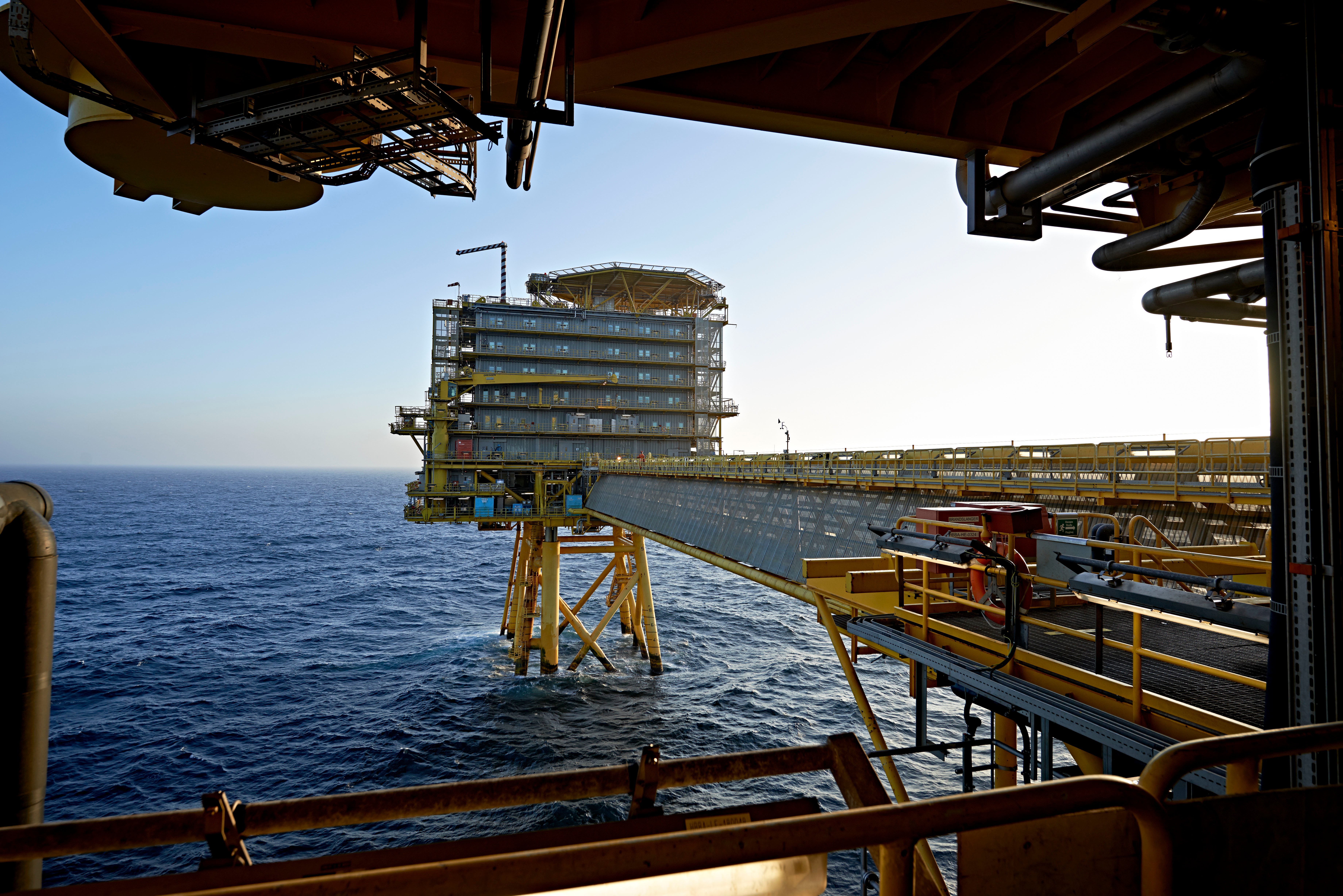Denmark to end oil, gas extraction in North Sea
Denmark has decided to end to all oil and gas offshore activities in the North Sea by 2050 and has cancelled its latest licensing round

Your support helps us to tell the story
This election is still a dead heat, according to most polls. In a fight with such wafer-thin margins, we need reporters on the ground talking to the people Trump and Harris are courting. Your support allows us to keep sending journalists to the story.
The Independent is trusted by 27 million Americans from across the entire political spectrum every month. Unlike many other quality news outlets, we choose not to lock you out of our reporting and analysis with paywalls. But quality journalism must still be paid for.
Help us keep bring these critical stories to light. Your support makes all the difference.
Denmark has decided to end to all oil and gas offshore activities in the North Sea by 2050 and has cancelled its latest licensing round, saying the country is "now putting an end to the fossil fuel era.”
The Danish Parliament voted late Thursday to end the offshore gas and oil extraction that started in 1972 and has made it the largest producer in the European Union. Non EU-members Norway and Britain are larger producers.
Denmark is estimated to pump some 83,000 barrels of crude oil and another 21,000 barrels of oil equivalent this year, according to the government.
That is relatively little in a global context. The U.K. produces about ten times that amount while the U.S., the world's largest producer, pumped over 19 million barrels of oil a day last year. Environmental activists nevertheless said the move was significant as it shows the way forward in the fight against climate change.
Greenpeace called it “a landmark decision toward the necessary phase-out of fossil fuels.”
“This is a huge victory for the climate movement,” said Helene Hagel of Greenpeace Denmark. Wealthy Denmark has “a moral obligation to end the search for new oil to send a clear signal that the world can and must act to meet the Paris Agreement and mitigate the climate crisis."
The 2015 landmark Paris climate deal asks both rich and poor countries to take action to curb the rise in global temperatures that is melting glaciers, raising sea levels and shifting rainfall patterns. It requires governments to present national plans to reduce emissions to limit global temperature rise to well below 2 degrees Celsius (3.6 degrees Fahrenheit).
Denmark has been an early adopter of wind power, with more than a third of its electricity production deriving from wind turbines. They are considered key in the transformation of the energy system and should enable Denmark to no longer be dependent on fossil fuels in 2050 for electricity production.
The agreement to end oil and gas extraction means that a planned eighth licensing round and any future tenders have been cancelled and makes 2050 the last year in which to extract fossil fuels in the North Sea.
It was backed by both the left-leaning parties as well as the center-right opposition, suggesting the policy is unlikely to be reversed.
“It is incredibly important that we now have a broad majority behind the agreement, so that there is no longer any doubt about the possibilities and conditions in the North Sea,” said Climate Minister Dan Joergensen, a Social Democrat.
According to official figures, the move would mean an estimated total loss for Denmark of 13 billion kroner ($2.1 billion). The industry has earned the small Scandinavian country over 500 billion ($81.5 billion) since the 1970s.
In October, energy group Total pulled out of the latest tender process leaving only one applicant, Ardent Oil according to authorities.
In June, the Danish Council on Climate Change - an independent body that advises the government - recommended ending any future exploration in the North Sea, saying a continuation would hurt the country’s ambitions as a front-runner on fighting climate change.
Subscribe to Independent Premium to bookmark this article
Want to bookmark your favourite articles and stories to read or reference later? Start your Independent Premium subscription today.